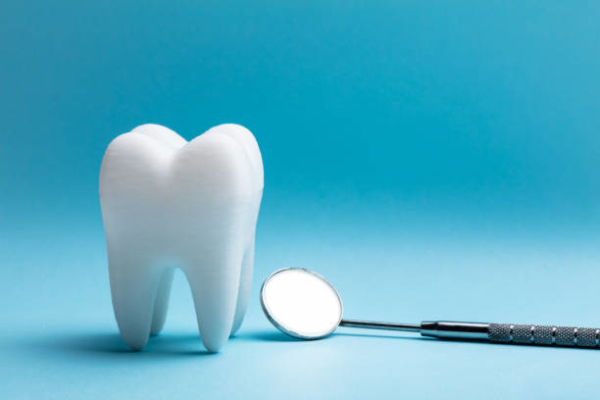Too often we think of dental care as nothing more than a cosmetic concern. The truth is that taking care of your teeth has much more of an effect on your overall health than you might think. As you get older, it is important to ensure that you make dental care a priority to help protect yourself from diseases and ailments that can affect your mouth’s health. If you’ve been hesitant to visit your dentist due to cost, here are three dental cost savings tips that might help.
Dental Cost Saving Tip 1: Prevent Major Dental Work with Regular Check-ups
If you’ve been avoiding your regular appointment with your dentist, you might be missing out on preventive care that could help you save money in the future. Regular dental check-ups, every six months, will usually allow your dentist to catch a problem before you even notice any symptoms. If an oral health concern is treated early on, it is often less expensive than if the problem goes untreated for a long period of time.
For example, during a regular dental check-up, it is not uncommon to find that a patient has a cavity that needs a filling. A filling is a generally inexpensive procedure. However, without preventive dental care, that cavity may go untreated for a long period of time. This could result in decay that requires a root canal treatment, with the accompanying cost of a dental crown. If the decay on the tooth is severe enough, a patient might require tooth extraction and consideration of a very expensive dental implant. Both the root canal and tooth extraction and implant treatment options can be time consuming, painful, and costly.
Save money in your future by ensuring that you visit your dentist regularly for check-ups and professional cleanings.
Dental Cost Saving Tip 2: Keep Your Teeth and Gums Healthy at Home
According to the American Dental Association (ADA), home oral care can help patients take charge of their oral health by following these general recommendations:
- Brush your teeth twice a day with a fluoride toothpaste
- Brush your teeth for two minutes: Two minutes for your whole mouth can also be expressed as thirty seconds per quadrant or about four seconds per tooth
- Floss your teeth to clean between your teeth daily
- Eat a healthy diet that limits sugary beverages and snacks
Dental Cost Saving Tip 3: Discuss your Treatment Plan with Your Insurance Provider
If you or a family member need advanced dental care, from root canals to braces, it is in your best interest to have your dental insurance provider review the treatment plan. Your dentist will often provide you with a treatment plan and the timeline for the needed dental work. Discussing the plan with your insurance company gives you an opportunity to learn about what dental care is covered, at what amount, and whether or not there is a way to maximize your benefits, based on the time of year that you get your dental treatment. A quick phone call can help you go back to your dentist with money-saving plan requests that will help you in the long run.
For questions about your dental plan, please contact your Trust Representative.
Recent Posts
Connecticut Expands Paid Sick Leave Law
Beginning January 1, 2025, Connecticut’s paid sick leave law—which currently covers employers with 50 or more employees in the state and only applies to service [...]
Aging Workforce in Physical Industries: Health Challenges and Solutions for NARFA Member Businesses
The American workforce is aging rapidly, particularly in industries with physical demands. This demographic shift presents unique challenges and opportunities for businesses in the automotive, [...]
GLP-1 Drugs: Weighing the Impact on Health and Healthcare Costs
In recent years, a new class of drugs has gained significant attention in the medical world, promising substantial weight loss and potential changes in healthcare [...]




